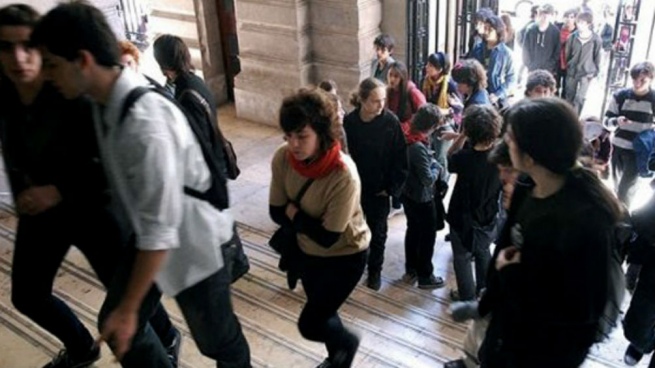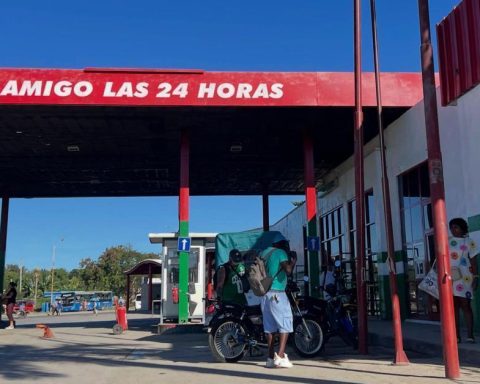On April 9, 2022, it was the 70th anniversary of the so-called National Revolution, a historical event with far-reaching consequences on the history of recent decades, regardless of our ideological position. The debate around this date has been quite limited, due to the foundational pretensions of masismo that leads it to ignore the historical construction prior to 2006. In my opinion, the date deserved a greater debate, with the long historical perspective that 70 years provide. , mainly analyzing how much Bolivia has advanced or regressed, since then, in its republican construction and towards its development and modernity.
As the writer Juan Claudio Lechín told me in a recent conversation, the advantage offered by the analysis of long historical cycles is that certain events and their consequences over time can be appreciated with greater perspectives. From his point of view, the yardstick to measure the National Revolution should be to analyze his contribution to the construction of the Republic, which from his point of view is equivalent to the road to modernity. Juan Claudio appreciates lights and shadows in the process that began in April 1952, although he points out that he undoubtedly made progress in carving out the Republic.
Some measures implied undeniable advances such as the right to universal voting, an essential and fundamental principle of a true republic that must be based mainly on a democracy of citizens with equal rights before the law and with effective guarantees of respect for their individual and collective freedoms. , although as Juan Claudio himself recalls, the universal vote did not guarantee that the vote would be respected in the governments of the leaders of the national revolution, since the “little machine” worked, a crude form of electoral fraud, by which its leaders filled the amphorae with ballot papers from their parties.
There were other reforms that have stood out a lot, such as the agrarian reform, by which the peasants became owners, which later would have an enormous impact on the failure of the attempts to establish a communist system in Bolivia, such as the one led by Che Guevara, because the peasants had a family property to defend. However, all those areas where the agrarian reform was applied have ended up impoverished, trapped by smallholdings and economic inviability, so it did not serve to lift the peasants out of poverty, but rather condemned them to a precarious subsistence, a situation aggravated by the current policies of delivery of collective property and not individual.
The nationalization of the mines, although it made it possible to control income to support the state apparatus, had as a great failure the Comibolde’s inability to discover and develop new deposits, since to this day state mining continues to depend on the mines that were nationalized seventy years ago. Something similar to what happened to the MAS in the last period with hydrocarbons, discovered thanks to the investments that were attracted in the 1990s, and which, once nationalized, financed a boom period squandered by the statist populism of the day, leading us to a new period in which extractivism exhausts the reserves of some natural resource, as has been repeated over and over again throughout national history.
Returning to the original question, if we compare ourselves with the other South American countries, except for the Venezuelan tragedy, Bolivia continues to be the most backward country. It does not mean that progress has not been made since 1952 in certain areas, but rather that other countries are advancing more than us. We continue to be trapped in a mixture of statism, populism and victimhood, which results in a centralized and deinstitutionalized state, a democracy mutilated by the absence of the rule of law and the lack of independent justice; and a precarious economy based on the exploitation of non-renewable natural resources. A process of greater inclusion could be highlighted, but without real opportunities for social mobility, this continues to be limited to the dispute over public spaces.
To debate the past is to lay the foundations for the discussion of our future. Bolivia needs more debate about its main problems and challenges for its progress. Otherwise we will continue trapped between our backwardness and victimhood.
On April 9, 2022, it was the 70th anniversary of the so-called National Revolution, a historical event with far-reaching consequences on the history of recent decades, regardless of our ideological position. The debate around this date has been quite limited, due to the foundational pretensions of masismo that leads it to ignore the historical construction prior to 2006. In my opinion, the date deserved a greater debate, with the long historical perspective that 70 years provide. , mainly analyzing how much Bolivia has advanced or regressed, since then, in its republican construction and towards its development and modernity.
As the writer Juan Claudio Lechín told me in a recent conversation, the advantage offered by the analysis of long historical cycles is that certain events and their consequences over time can be appreciated with greater perspectives. From his point of view, the yardstick to measure the National Revolution should be to analyze his contribution to the construction of the Republic, which from his point of view is equivalent to the road to modernity. Juan Claudio appreciates lights and shadows in the process that began in April 1952, although he points out that he undoubtedly made progress in carving out the Republic.
Some measures implied undeniable advances such as the right to universal voting, an essential and fundamental principle of a true republic that must be based mainly on a democracy of citizens with equal rights before the law and with effective guarantees of respect for their individual and collective freedoms. , although as Juan Claudio himself recalls, the universal vote did not guarantee that the vote would be respected in the governments of the leaders of the national revolution, since the “little machine” worked, a crude form of electoral fraud, by which its leaders filled the amphorae with ballot papers from their parties.
There were other reforms that have stood out a lot, such as the agrarian reform, by which the peasants became owners, which later would have an enormous impact on the failure of the attempts to establish a communist system in Bolivia, such as the one led by Che Guevara, because the peasants had a family property to defend. However, all those areas where the agrarian reform was applied have ended up impoverished, trapped by smallholdings and economic inviability, so it did not serve to lift the peasants out of poverty, but rather condemned them to a precarious subsistence, a situation aggravated by the current policies of delivery of collective property and not individual.
The nationalization of the mines, although it made it possible to control income to support the state apparatus, had as a great failure the Comibolde’s inability to discover and develop new deposits, since to this day state mining continues to depend on the mines that were nationalized seventy years ago. Something similar to what happened to the MAS in the last period with hydrocarbons, discovered thanks to the investments that were attracted in the 1990s, and which, once nationalized, financed a boom period squandered by the statist populism of the day, leading us to a new period in which extractivism exhausts the reserves of some natural resource, as has been repeated over and over again throughout national history.
Returning to the original question, if we compare ourselves with the other South American countries, except for the Venezuelan tragedy, Bolivia continues to be the most backward country. It does not mean that progress has not been made since 1952 in certain areas, but rather that other countries are advancing more than us. We continue to be trapped in a mixture of statism, populism and victimhood, which results in a centralized and deinstitutionalized state, a democracy mutilated by the absence of the rule of law and the lack of independent justice; and a precarious economy based on the exploitation of non-renewable natural resources. A process of greater inclusion could be highlighted, but without real opportunities for social mobility, this continues to be limited to the dispute over public spaces.
To debate the past is to lay the foundations for the discussion of our future. Bolivia needs more debate about its main problems and challenges for its progress. Otherwise we will continue trapped between our backwardness and victimhood.
;


















